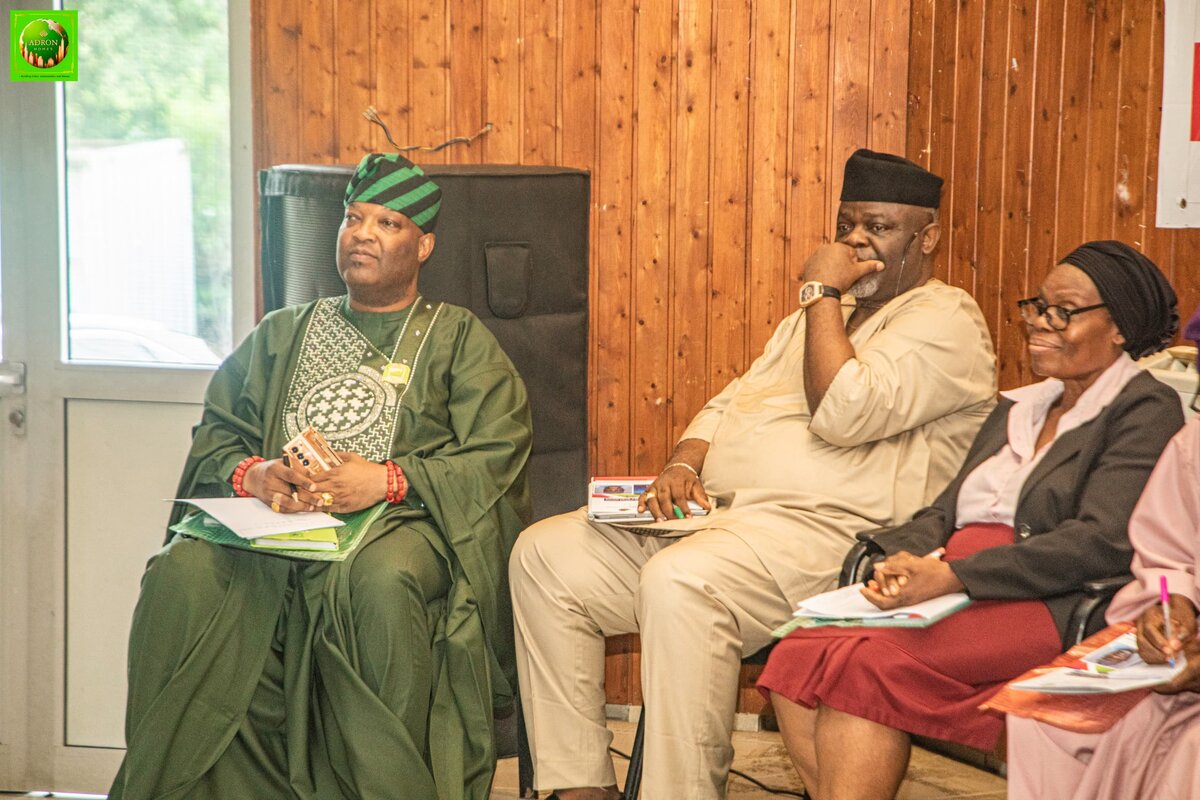Building collapse crisis in Lagos discussed at UNILAG dialogue as industry experts demand urgent reforms, stronger regulation, and ethical construction practices
[dropcap]T[/dropcap]he building collapse crisis in Lagos returned to national focus as leading voices from Nigeria’s real estate and construction sectors gathered at the University of Lagos to chart a new course for safety in the industry.
Also read: Two-storey building collapses on RCCG church in Lagos with no casualties reported
The occasion was the Professor Leke Oduwaye-Adron Homes Urban Development Dialogue, a forum organised by the Department of Urban and Regional Planning in collaboration with Adron Homes.
With the theme, “Recurring Building Collapse in Lagos: The Challenge of Regulatory Oversight and Construction Practices,” the event brought together experts, policymakers, and regulators to address what many called a preventable tragedy.
In his opening remarks, Group Chairman of Adron Group, Sir Aare Adetola EmmanuelKing, described the frequent incidents of collapsed buildings as a national disgrace.
“Buildings do not collapse by accident. They collapse because somewhere along the chain of planning, approval, construction, or supervision, individuals choose to compromise,” he said.
He called for a culture rooted in Verification, Validation, and Control. According to him, the solution lies in professional integrity and holding every stakeholder accountable.
“We must demand ethical responsibility across the board. Only then can we break the cycle of disaster,” he declared.
Tpl. (Dr.) Idris Salako, former Lagos State Commissioner for Physical Planning and Urban Development, delivered the guest lecture. He gave an unfiltered assessment of systemic failings in the sector.
Dr. Salako cited poor coordination among regulatory agencies, weak enforcement, and the widespread disregard for approved building plans as core drivers of the crisis.
He went further to explain that political interference and corruption allow quack professionals to flourish while side-lining certified experts.
“Until there is capacity building for regulators, digital approval systems, and proper artisan certification, the problem will persist,” he warned.
Tpl. Tunji Odunlami, Ogun State Commissioner for Physical Planning, also spoke at the event, as did Professor Ayo Omotayo, Director General of the National Institute of Policy and Strategic Studies.
Both men echoed the urgency for reform. They called for stronger regulation, smarter urban planning, and deeper collaboration between public agencies, private developers, and professionals.
Professor Omotayo stated clearly that the safety of urban residents should no longer be negotiable.
“Our cities are growing fast, but if we fail to control how we build, we risk repeating the same mistakes that have cost too many lives.”
Chairman of the event, Tpl. Waheed Kadiri, a former president of the Nigerian Institute of Town Planners, noted that the industry’s survival depends on its ability to self-correct.
“We must no longer treat incompetence with silence. The time for decisive action is now,” he said.
Dr. S.A. Adeyemi, Chair of the Organising Committee, and Dr. Taofik Salau, Head of Department at DURP, UNILAG, both expressed optimism that the dialogue would shift policy and practice.
Also in attendance was Professor Modupe Omirin, Dean of the Faculty of Environmental Sciences, who stressed the role of academic institutions in shaping ethical future practitioners.
Throughout the forum, there was consensus that Nigeria must move beyond reactive responses to building failures.
Stakeholders agreed that only reforms grounded in professionalism, data, and transparency would prevent further loss of life.
Also read: Building housing Equal Right Restaurant collapse in Lagos, several feared trapped under rubble
By addressing the building collapse crisis in Lagos, the dialogue marks a bold step toward creating urban spaces that are not only liveable but resilient, sustainable, and safe for all.
Source: Read more at channelstv.com




























